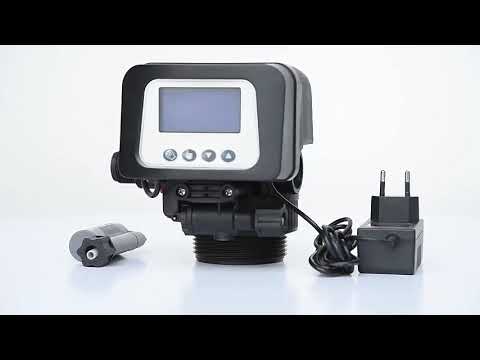“Softened water: a plant’s worst enemy.”
Table of Contents
Effects of Water Softener Water on Plant Growth
Water softeners are commonly used in households to remove minerals such as calcium and magnesium from water, which can cause limescale buildup in pipes and appliances. However, the use of water softeners can have unintended consequences on plant growth if the softened water is used for watering plants.
One of the main concerns with using water softener water on plants is the high levels of sodium that can be present. Sodium is not a nutrient that plants need for growth, and high levels of sodium in the soil can be detrimental to plant health. When plants absorb water that is high in sodium, it can disrupt the balance of nutrients within the plant, leading to stunted growth and yellowing of leaves.
In addition to sodium, water softener water can also have elevated levels of chloride. Chloride is another mineral that can be harmful to plants in high concentrations. Chloride can interfere with a plant’s ability to take up essential nutrients from the soil, leading to nutrient deficiencies and poor growth.
Furthermore, the use of water softener water can also affect the pH of the soil. Water softener water tends to have a higher pH, which can alter the acidity of the soil. Most plants have specific pH requirements for optimal growth, and using water with a high pH can lead to nutrient imbalances and nutrient deficiencies in plants.
It is important to note that not all plants are equally sensitive to the effects of water softener water. Some plants, such as succulents and cacti, are more tolerant of high levels of sodium and chloride in the soil. However, most garden plants, vegetables, and flowers are more sensitive and can be negatively impacted by the use of water softener water for irrigation.
If you are using water softener water for watering your plants, there are steps you can take to mitigate the negative effects. One option is to dilute the softened water with rainwater or distilled water to reduce the concentration of sodium and chloride. Another option is to use a reverse osmosis system to remove the minerals from the water before using it on your plants.
In conclusion, while water softeners are effective at removing minerals from water, the softened water can have negative effects on plant growth if used for watering plants. The high levels of sodium and chloride in water softener water can disrupt nutrient uptake in plants and alter the pH of the soil, leading to poor growth and nutrient deficiencies. If you choose to use water softener water for watering your plants, it is important to take steps to mitigate the negative effects and ensure the health and vitality of your plants.
Tips for Minimizing Harm to Plants from Water Softener Water
Water softeners are a common household appliance used to remove minerals such as calcium and magnesium from water. While softened water is beneficial for many household tasks, such as washing dishes and doing laundry, it can have negative effects on plants if not used properly. In this article, we will discuss whether water softener water can harm plants and provide tips for minimizing any potential harm.
One of the main concerns with using water softener water on plants is the high levels of sodium it contains. Sodium can be harmful to plants in large quantities, as it can disrupt the balance of nutrients in the soil and inhibit the plant’s ability to take up essential nutrients. Additionally, sodium can cause soil compaction, which can restrict root growth and lead to poor plant health.
To determine whether water softener water is safe for your plants, it is important to test the water’s sodium levels. You can do this by using a simple water testing kit, which can be purchased at most garden centers or hardware stores. If the sodium levels in your water softener water are high, it is best to avoid using it on your plants.
If you do decide to use water softener water on your plants, there are several steps you can take to minimize any potential harm. One option is to dilute the water softener water with regular tap water. By mixing the two waters together, you can reduce the overall sodium content and make it safer for your plants. Another option is to use the water softener water on plants that are less sensitive to sodium, such as established trees and shrubs.
In addition to diluting the water softener water, you can also take steps to improve the soil’s drainage and nutrient levels. Adding organic matter, such as compost or mulch, to the soil can help improve its structure and fertility, making it easier for plants to absorb nutrients and water. You can also use a balanced fertilizer to provide your plants with the nutrients they need to thrive.
| float bed DR-1 | ||||
| Model | DR2-1/ DR2-1 LCD | DR4-1/ DR4-1 LCD | DR10-1 Top Loading | DR10-1 Side Loading |
| Output Max | 4T/H | 7T/H | 15T/H | 15T/H |
It is also important to monitor your plants closely when using water softener water. Keep an eye out for any signs of stress, such as wilting leaves or yellowing foliage. If you notice any of these symptoms, stop using the water softener water immediately and switch to regular tap water.
In conclusion, while water softener water can be harmful to plants if not used properly, there are steps you can take to minimize any potential harm. By testing the water’s sodium levels, diluting the water, improving soil drainage and fertility, and monitoring your plants closely, you can help ensure that your plants remain healthy and vibrant. Remember, when it comes to watering your plants, it is always better to be safe than sorry.








